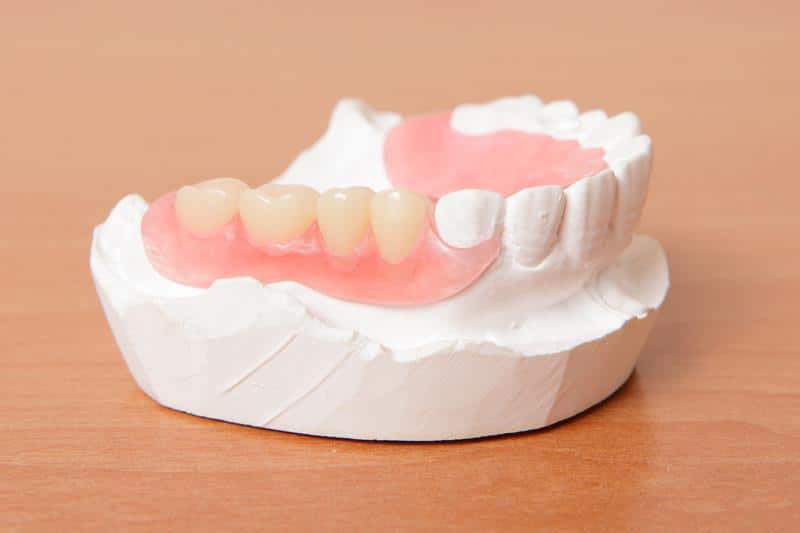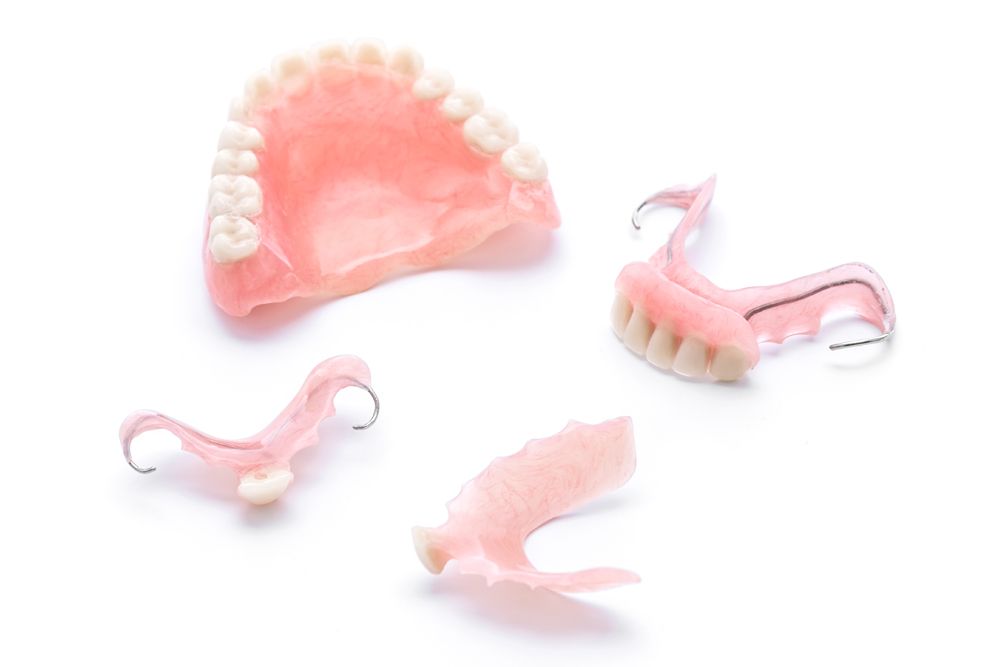If due to an illness, an injury or an accident, you have lost some teeth, it is possible that you have gone to a professional to repair something as important as your teeth . As you already know, there are several types of different prostheses, each with its advantages and disadvantages, which are indicated for specific cases. If you have questions about what flexible dentures are, you are in the right place. In this post we give you all the information you need.
When we talk about flexible dental prostheses, we are referring to those that are not fixed, therefore, they can be removed and put on according to the patient’s needs. user. Being removable, it can be easily removed from the mouth to clean or for any use indicated by the doctor.

These flexible dental prostheses are made with elastic and resistant textile fiber. This material is known as nylon, which is practically transparent, so it allows the real color of teeth and gums to be seen. In this way, it makes it almost negligible. Likewise, this material is the most suitable for this type of prosthesis, since it is very comfortable to the touch in the mouth, it is resistant to impacts and falls, of course, waterproof and, being a semi-flexible material, it provides elastic properties highly appreciated by those who use it.
ADVANTAGES AND DISADVANTAGES OF FLEXIBLE DENTURES
Like all others, flexible dental prostheses have a series of advantages and disadvantages, which we are going to discuss below:

Advantages
- It is made with a hypoallergenic material, that is, it does not generate any type of allergy. This differentiates them from acrylic prostheses.
- On an aesthetic level, very good results are achieved, since flexible dental prostheses take on the natural color of teeth and gums.
- As they are made of nylon, they are very comfortable thanks to their flexibility. In addition, they can be adjusted in terms of rigidity depending on their thickness.
- They adhere to the gums without the need for adhesives or metal closures.
- They are, to a large extent, resistant to shocks and falls.
- Its manufacturing time is shorter compared to other types of dental prostheses.
Disadvantages
- Given its translucency, nylon can present, over time, stains and pigmentations. Above all, by consuming tobacco, wine or coffee.
- Due to their composition, it is not possible to repair them, but it is necessary to replace them completely.
- In some patients, if their chewing force is strong, there may be a small displacement of the teeth in the prosthesis.
HOW LONG DOES A FLEXIBLE DENTURE LAST?

In general terms, and although it always varies depending on the quality of manufacture, use, and care given to them, flexible dental prostheses usually have an estimated duration of 5 to 10 years. As we say, this will depend on certain factors such as:
- Manufacturing quality. It is important to have expert manufacturers in this type of prosthesis to maximize its quality.
- Use. In people with a greater bite force, or with a tendency to bruxism, this prosthesis tends to be shorter in duration.
- Careful. It is essential to clean them daily to maintain their hygiene and maximize their useful life.
WHAT IS BETTER, AN ACRYLIC OR FLEXIBLE PROSTHESIS?

It must be taken into account that both types of prostheses are indicated for people who are missing many teeth. Firstly, the removable dental prosthesis made of acrylic material has a greater rigidity than the flexible one, which makes it a little less comfortable. A point in favor of the acrylic prosthesis is that it allows adding, if necessary, another tooth, which is impossible with the flexible one.
On the other hand, the flexible prosthesis has greater adhesion, although due to this flexibility, it can rub a little more on the gum.
Finally, and as a favorable point for the flexible prosthesis, is the aesthetics. As we have mentioned previously, thanks to its translucent color, it camouflages perfectly with the color of the teeth and gums of each of the patients.
So what is better, an acrylic or flexible denture? Well, in most cases it will depend on the recommendation of the professional who is going to install them, although in terms of comfort, without a doubt, we opt for the flexible prosthesis.
In any case, if you still have any questions after reading this post, do not hesitate to contact us. Whatever your question, we will be happy to help you and we will study your case in depth.




















